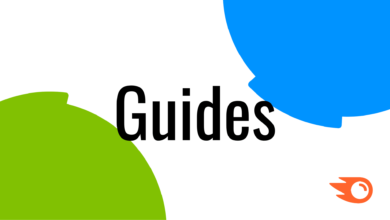Why Content Planning is Essential for Success in Marketing

Content planning is a crucial aspect of any successful marketing strategy. It involves creating a roadmap for your content creation efforts to ensure that you are consistently delivering high-quality, relevant content to your target audience. By carefully planning your content, you can save time, resources, and ensure that your marketing efforts are aligned with your overall business goals.
Benefits of Content Planning
There are several key benefits to implementing a content planning strategy in your marketing efforts:
1. Consistency
By planning your content in advance, you can ensure that you are consistently delivering valuable information to your audience. Consistency is key in building trust and credibility with your target market, and by having a content plan in place, you can avoid gaps in your content schedule.
2. Alignment with Business Goals
Content planning allows you to align your marketing efforts with your overall business goals. By creating content that is focused on your target audience and addresses their needs and pain points, you can drive traffic, generate leads, and ultimately increase sales and revenue.
3. Improved SEO
Planning your content in advance allows you to conduct keyword research and optimize your content for search engines. By incorporating relevant keywords into your content, you can improve your search engine rankings and drive more organic traffic to your website.
4. Efficient Use of Resources
By planning your content in advance, you can ensure that you are making efficient use of your resources. You can allocate time and budget to create high-quality content that resonates with your audience, rather than scrambling to create content at the last minute.
5. Better Engagement
Content planning allows you to create a variety of content types and formats to engage your audience. By diversifying your content strategy, you can keep your audience interested and coming back for more.
How to Create a Content Plan
Creating a content plan involves several key steps:
1. Define Your Goals
Start by defining your marketing goals and objectives. What do you want to achieve with your content? Are you looking to drive traffic, generate leads, or increase sales? By clearly defining your goals, you can create content that is aligned with your business objectives.
2. Understand Your Audience
Research your target audience to understand their needs, preferences, and pain points. By creating content that addresses these needs, you can attract and engage your audience more effectively.
3. Conduct Keyword Research
Identify relevant keywords that are related to your business and target audience. Incorporate these keywords into your content to improve your search engine rankings and drive organic traffic to your website.
4. Create a Content Calendar
Develop a content calendar that outlines the topics, formats, and publishing schedule for your content. This will help you stay organized and ensure that you are consistently delivering valuable content to your audience.
5. Measure and Analyze Results
Track the performance of your content and analyze key metrics such as website traffic, engagement, and conversions. Use this data to refine your content strategy and make informed decisions about future content planning efforts.
FAQs
What is content planning?
Content planning is the process of creating a roadmap for your content creation efforts to ensure that you are consistently delivering high-quality, relevant content to your target audience.
Why is content planning important for marketing?
Content planning is important for marketing because it helps you align your marketing efforts with your business goals, improve SEO, engage your audience, and make efficient use of your resources.
How can I create a content plan?
To create a content plan, start by defining your goals, understanding your audience, conducting keyword research, creating a content calendar, and measuring and analyzing results.




